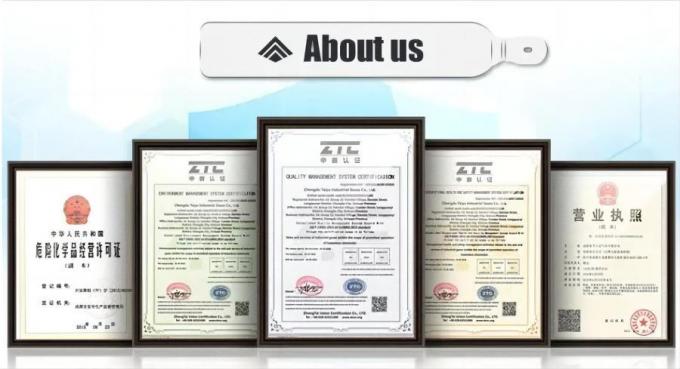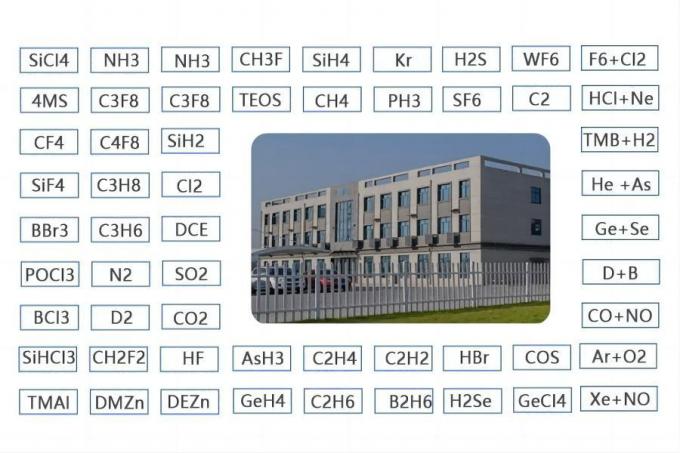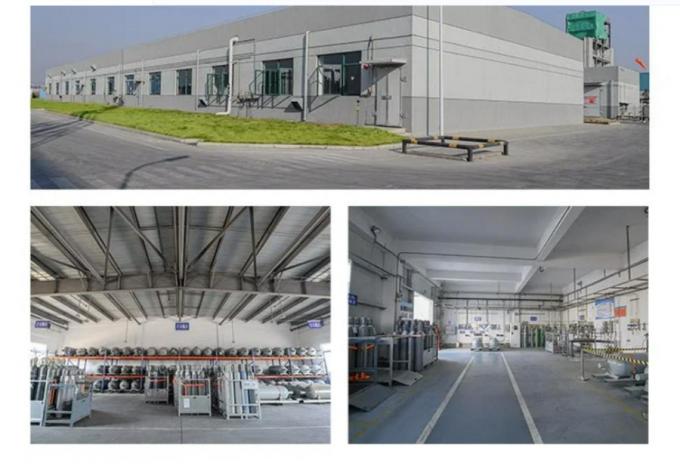


| MOQ: | 1kg |
| Price: | US $15/kg |
| Standard Packaging: | Cylinder/Tank |
| Delivery Period: | 15 days |
| Payment Method: | L/C, T/T |
| Supply Capacity: | 20000 Tons/Year |
Hydrogen chloride (HCl) is a chemical compound composed of hydrogen and chlorine. It is a strong acid and is commonly encountered in the form of a colorless gas. When dissolved in water, it forms hydrochloric acid, which is a highly corrosive solution commonly used in industrial processes and laboratory work.
Here are some key points about hydrogen chloride:
1. Chemical Formula: HCl
2. Physical Properties: Hydrogen chloride is a colorless gas with a pungent odor. It is highly soluble in water, and the resulting solution is commonly known as hydrochloric acid.
3. Production: Hydrogen chloride can be produced by several methods, including the direct combination of hydrogen gas (H₂) and chlorine gas (Cl₂), as well as by the reaction of certain chloride salts with strong acids.
4. Uses: Hydrogen chloride has various applications in different industries. Some common uses include:
- Production of hydrochloric acid: Hydrogen chloride is widely used in the production of hydrochloric acid, an essential chemical in various industrial processes.
- Chemical synthesis: It serves as a reagent in the synthesis of various organic and inorganic compounds.
- pH adjustment: Hydrochloric acid is often used to adjust the pH levels in swimming pools, water treatment systems, and laboratory experiments.
- Metal cleaning and etching: It is employed in metal cleaning and etching processes, such as the pickling of steel.
5. Safety and Hazards: Hydrogen chloride is a highly corrosive substance that can cause severe burns and eye damage. It is also toxic when inhaled or ingested. Adequate precautions, such as proper ventilation and protective equipment, should be taken when working with hydrogen chloride or hydrochloric acid.
It's important to handle hydrogen chloride and hydrochloric acid with caution due to their corrosive and hazardous nature. If you have any specific questions or need further information, feel free to ask!
Specification:
| Molecular Weight | 36.46 | Density | 1.477Kg/m³ |
| Melting Point | -114.2ºC | Boiling Point | -85.1ºC |
| Appearance | Colorless,Pungent | Un No. | 1050 |
| DOT Class | 2.3&8 | Valve | CGA660 |
| Cylinder Standard | GB/ISO/DOT | Cylinder Pressure | 15Mpa/20Mpa |
| Transport Package | 44L | Specification | 99.9% |
| Trademark | CMC | Origin | China |
| HS Code | 28061000 | Production Capacity | 2000tons/Year |
Detailed Photo
![]()




| MOQ: | 1kg |
| Price: | US $15/kg |
| Standard Packaging: | Cylinder/Tank |
| Delivery Period: | 15 days |
| Payment Method: | L/C, T/T |
| Supply Capacity: | 20000 Tons/Year |
Hydrogen chloride (HCl) is a chemical compound composed of hydrogen and chlorine. It is a strong acid and is commonly encountered in the form of a colorless gas. When dissolved in water, it forms hydrochloric acid, which is a highly corrosive solution commonly used in industrial processes and laboratory work.
Here are some key points about hydrogen chloride:
1. Chemical Formula: HCl
2. Physical Properties: Hydrogen chloride is a colorless gas with a pungent odor. It is highly soluble in water, and the resulting solution is commonly known as hydrochloric acid.
3. Production: Hydrogen chloride can be produced by several methods, including the direct combination of hydrogen gas (H₂) and chlorine gas (Cl₂), as well as by the reaction of certain chloride salts with strong acids.
4. Uses: Hydrogen chloride has various applications in different industries. Some common uses include:
- Production of hydrochloric acid: Hydrogen chloride is widely used in the production of hydrochloric acid, an essential chemical in various industrial processes.
- Chemical synthesis: It serves as a reagent in the synthesis of various organic and inorganic compounds.
- pH adjustment: Hydrochloric acid is often used to adjust the pH levels in swimming pools, water treatment systems, and laboratory experiments.
- Metal cleaning and etching: It is employed in metal cleaning and etching processes, such as the pickling of steel.
5. Safety and Hazards: Hydrogen chloride is a highly corrosive substance that can cause severe burns and eye damage. It is also toxic when inhaled or ingested. Adequate precautions, such as proper ventilation and protective equipment, should be taken when working with hydrogen chloride or hydrochloric acid.
It's important to handle hydrogen chloride and hydrochloric acid with caution due to their corrosive and hazardous nature. If you have any specific questions or need further information, feel free to ask!
Specification:
| Molecular Weight | 36.46 | Density | 1.477Kg/m³ |
| Melting Point | -114.2ºC | Boiling Point | -85.1ºC |
| Appearance | Colorless,Pungent | Un No. | 1050 |
| DOT Class | 2.3&8 | Valve | CGA660 |
| Cylinder Standard | GB/ISO/DOT | Cylinder Pressure | 15Mpa/20Mpa |
| Transport Package | 44L | Specification | 99.9% |
| Trademark | CMC | Origin | China |
| HS Code | 28061000 | Production Capacity | 2000tons/Year |
Detailed Photo
![]()


